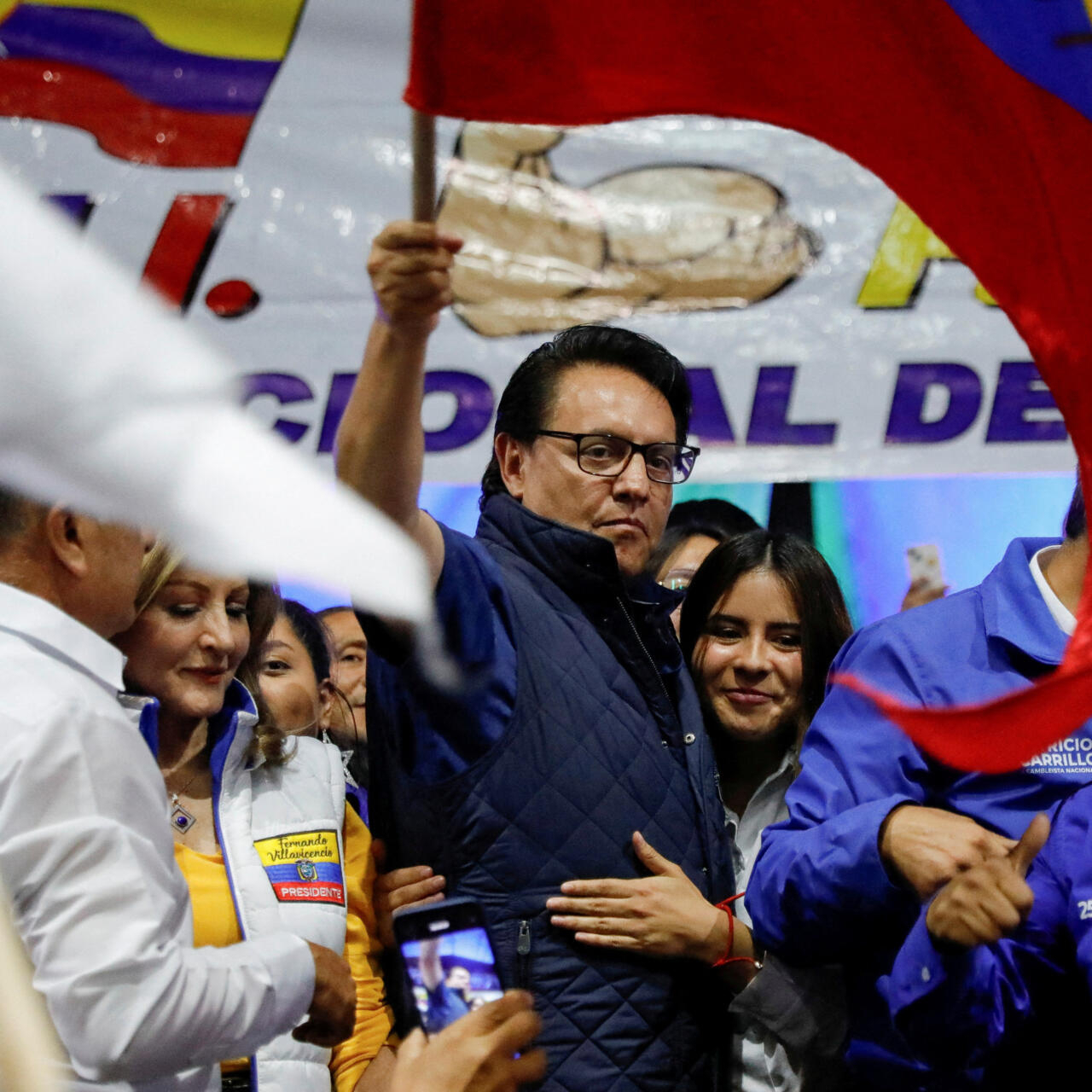Outgoing Ecuadorian President Guillermo Lasso has declared a countrywide state of emergency for 60 days in response to the killing of presidential candidate Fernando Villavicencio at a campaign rally in the capital Quito, according to Al Jazeera.
Villavicencio, 59, a vocal critic of corruption and organised crime, was killed at the campaign event on Wednesday amid a surge in violence in the Andean nation blamed on drug traffickers.
“The armed forces as of this moment are mobilised throughout the national territory to guarantee the security of citizens, the tranquillity of the country and the free and democratic elections of August 20,” Lasso said on Thursday in an address broadcast on YouTube.
Local media reported some 30 shots had been fired at an event in the north of Quito. Video footage posted on social media showed Villavicencio getting into a car after the event, before the sound of apparent gunfire and screaming.
“Outraged and shocked by the assassination of presidential candidate Fernando Villavicencio. My solidarity and condolences to his wife and daughters,” Lasso said on X, the social media platform formerly known as Twitter.
The attorney general’s office said one suspect in the crime later died of injuries sustained in a shootout. The violence injured nine other people, including a candidate for the legislature and two police officers.
The office later said it had arrested six people so far in connection with the crime during raids in Quito.
Ecuador’s police and Interior Ministry did not respond to repeated requests for comment about the details of the killing, but Lasso confirmed police safely detonated a grenade left behind by the killers.
“This is a political crime, which has the character of terrorism, and we do not doubt that this murder is an attempt to sabotage the electoral process,” Lasso said in the video statement past midnight local time, after meeting with security and electoral officials.
The country’s main newspaper, El Universo, reported that the candidate was assassinated “hitman-style and with three shots to the head.”
Videos posted on social media appear to show Villavicencio walking out of the event surrounded by guards. The video then shows him entering a white truck followed by gunfire.
Pictures and video footage from the rally show chaotic scenes as people dived for cover on the floor of a building after the shots were fired.
The attorney general’s office said later that a suspect had died of injuries received during capture.
“A suspect, who was injured during the shootout with security personnel, was apprehended and moved, badly injured, to the [attorney general’s] unit in Quito. An ambulance from the fire department confirmed his death, the police are proceeding with collection of the cadaver,” the attorney general’s office said on social media.
Nine other people were injured during the attack, including a candidate for the legislature and two police officers, according to reports.
Patricio Zuquilanda, Villavicencio’s campaign adviser, told The Associated Press news agency after the shooting that Villavicencio had received death threats, which he had reported to authorities.
Zuquilanda called on international authorities to take action against the violence, attributing it to rising violence and drug trafficking in the country.
“The Ecuadorian people are crying, and Ecuador is mortally wounded,” he said. “Politics cannot lead to the death of any member of society.”
Villavicencio, from the Andean province of Chimborazo, was a former lawmaker, union member at state oil company Petroecuador, and later a journalist who denounced alleged losses in oil contracts.
He was one of the eight presidential candidates registered to stand in the elections scheduled for August 20. On Tuesday, Villavicencio made a report to Ecuador’s attorney general’s office about an oil business, but no further details of his report were made public.
Villavicencio was also an outspoken critic of former President Rafael Correa and was sentenced to 18 months in prison for defamation over statements against the latter. He fled to Indigenous territory within Ecuador and was later given asylum in Peru.
Journalist Gordon Durnin, speaking to Al Jazeera from Quito, said Villavicencio was a well-known critic of Correa, who was president from 2007 to 2017.
“He had brought many, many charges and evidence against the Correa government for corruption,” Durnin said.
As a legislator, Villavicencio was also criticised by opposition politicians for obstructing an impeachment process this year against Lasso, which lead the latter to call the early presidential elections.
“Today, more than ever, the need to act with a strong hand against crime is reiterated. May God have him in his glory,” fellow presidential hopeful Jan Topic said in a post on X.









